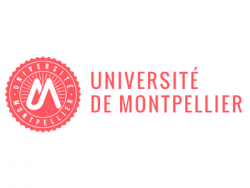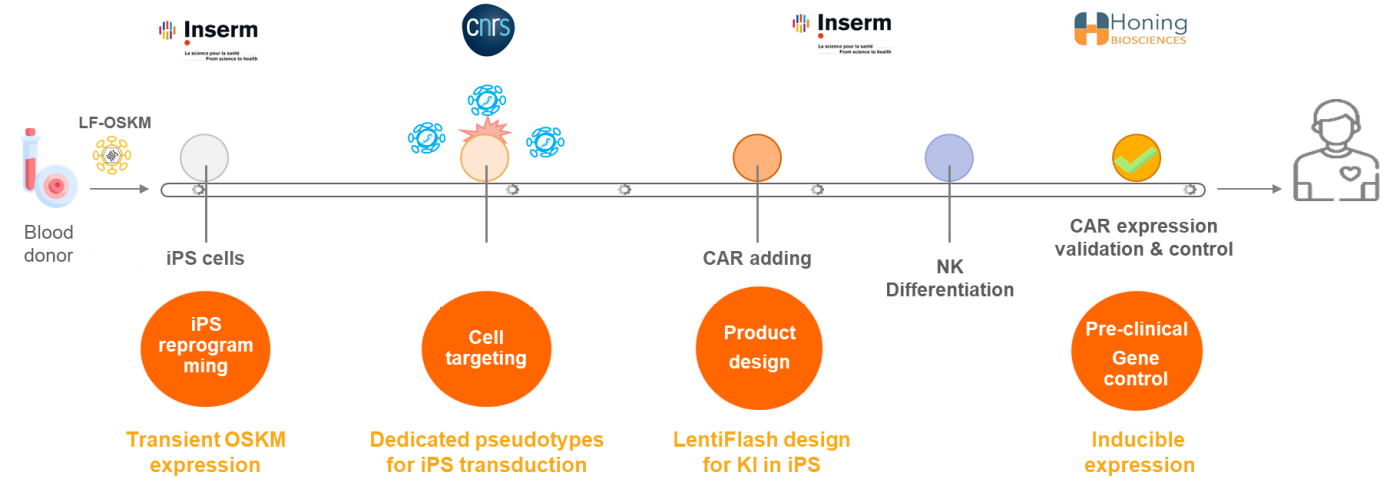ETINCELL project: iPS derived CARtune-NK cells
The ambition of the ETINCELL project, led by Flash Therapeutics, is to develop a new generation of genetically modified allogeneic drug cells (CARtune-iNK) derived from induced pluripotent stem cells (iPS cells). This project is carried out thanks to the combination of disruptive technologies based on the expertise of its academic and biotech partners on engineering and cell reprogramming, differentiation, regulation of gene expression and gene transfer. Flash Therapeutics, specialized in the field of gene therapy, will support the design, development and production of gene transfer technologies based on DNA and RNA transfer.
Objectives & Technical challenges
The objective of the project is to develop a new generation of more reliable cell therapies, obtained in the first place due to the improvement of the supplied cellular raw materials, such as iPS cells. Their source and quality are optimized and they are generated thanks to the transduction by LentiFlash® delivering the four mRNAs of reprogramming factors. Moreover, lentiviral vectors are customized with engineered pseudotype to target specific cells. LentiFlash® is also used to safely deliver the CRISPR/Cas9 system in combination with a vector delivering an inducible and tunable CAR system, CARtune-iNK cells will be generated.
An inducible CARtune-iNK drug cell allows an anti-tumor activity that will be tunable in timing and in level of expression. This pioneering approach of inducible CARtune-iNK cell will avoid the pitfalls of contemporary treatments thus opening new possibilities in oncology.
Timeline & Funding:
The ETINCELL project was launched in May 2021 for a duration of 2 years and has received funding from BPI France and Occitanie Region.
Consortium Members
University of Montpellier: IRMB
Two academic laboratories from the University of Montpellier participate: The Institute for Regenerative Medecine and Biotherapy (IRMB) and the Institute of Research in Infectiology of Montpellier (IRIM) which are specialized in the development of cellular reprogramming strategies to generate iPSC and the lentiviral particles maturation and assembly, respectively.

CNRS
The Institute of Cellular Integrative Biology (I2BC) is an academic laboratory specialized in the study and the modulation of the mechanism of virus entry.

Inserm
INSERM UMRS/UA09 is bound to UMS CiTHERA (Evry), certified Integrator pre-industrial of the Bioproduction Grand Challenge in July 2020, which will produce iPS cells in clinical grade (GMP grade) and differentiate them into NK cells.
The unity U935/UA09 is specialized in cellular reprogramming, cell engineering & genomic of iPS cells and in differentiation processes in hematopoietic cells for allografting applications and immunotherapies.

Honing Biosciences
Honing Biosciences, French SME specialized in the development of approaches based on the control of intracellular trafficking allowing the modulation of drug cell activity.



